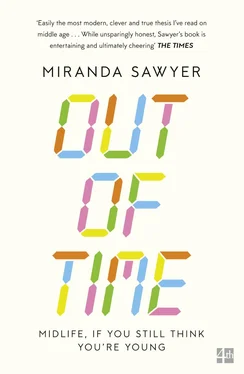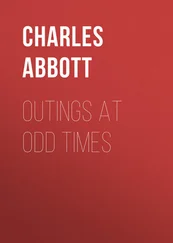What’s strange is that you do no more side-tracking than you did in your twenties, not really. You probably do less. You certainly spend less time drunk. But time is moving faster. It is, it is.
At that particular moment, the internet began to make a difference, to music and to books and to the media. The magazines I worked for started to close, one by one. Select shut down in 2000; The Face in 2004; Smash Hits , 2006. The Mirror launched a magazine in 2002, and I wrote a column for it; it was shuttered two years later. The Observer remained, and its sister paper, the Guardian . Both changed their size from broadsheet to Berliner in 2005. The new-sized printing presses cost £80 million, which was deemed a worthwhile investment, as though printing equipment was like London property.
Though most newspapers were still alive, there was pressure on fees, a blanket ban on contracts. One paper gathered together all its regular freelance writers and photographers to tell them it valued them highly but their rates would be cut in half from then on. A hundred per cent of the work; fifty per cent of the pay.
The internet had already messed up the music business, that no-longer-warbling dead canary in the goldmine. Music was all over the place. The money to be made in it was shifting from albums to gigs; record companies and promoters were haggling over what they thought was their share. At one point, mobile phone ringtones were deemed to be the way to wring profits from songs. In 2001, Apple launched iTunes and the iPod, and the iTunes store in 2003. Albums were unbundled, non-singles rendered worthless.
Still, to us, our ways of working remained the best. They had glamour, they were fun. We understood what to do, what the results meant. (Were our ways the old ways? Hadn’t we only just invented them?) We laughed and bitched, as the earth was shifting beneath our feet.
In September 2008, I did an interview with Grace Jones. We met in a chi-chi bar-restaurant in Notting Hill that had lots of small rooms and sparkly fairy lights. It was a Monday night. Grace was hours late – her manager and I had a lovely meal while we waited – and, after she arrived, insisted on smoking, which made the waiters mad. At the end of the interview, which wasn’t really an interview but an oblique chat in which Grace drank red wine, shouted, ‘I am the ink in the squid,’ and waggled her legs at me so I could feel how skinny her ankles were – anyway, at the end of that, we went to the bar.
Grace paid for the meal in cash (the only pop star I’ve ever interviewed who has done so) and ordered Sambuca for us both. She said, ‘Father, Son and Holy Ghost,’ and we biffed the drinks. Then she stuck her tongue down my throat: an unexpected move, which made me burst out laughing. Her lips were very soft. Grace stroked my face and grabbed my breast and said, ‘It’s a full moon, I feel horrrrrny’ (to be fair, she had shouted this all evening). She wondered if I wanted to come to her hotel, and when I did not, she didn’t seem that bothered.
She gave me her phone number. ‘File it under Grrrr,’ she said, so I did.
I helped her down the stairs – she was very drunk, did I mention? – and we went out into the wide Notting Hill street, the buildings like glistening celebration cakes, the street empty and quiet. Grace ran down the middle of the road, her arms stretched wide, her black outfit billowing around her, howling at the moon.
I thought: They don’t make pop stars like that any more.
(They don’t. We don’t. Do we still want them?)
As Grace ran and howled, without apology, in London, over in New York Lehman Brothers was collapsing. Suddenly, the world of money imploded and shrank, and everything in its orbit got sucked into its black hole, never to escape.
All the bubbles were bursting. There was an election and the coalition got in. The day before the election, I’d interviewed Gordon Brown, prime minister incumbent, for the Mirror . I’d gone to the seaside, where he’d made a great speech. But he was impatient during our interview, which, for reasons I forget, took place in a static helicopter in the middle of a field. Afterwards, we had our photograph taken together. Then Brown took off in his helicopter, leaving me and the photographer alone. In a field. We had to find a taxi and file on the hoof. I transcribed the interview on a train, bashed it out in Starbucks. But I couldn’t get the Starbucks internet to work on my laptop. My editor started shouting at me down the phone.
I asked a young techy guy if I could hop onto his wi-fi so I could file my copy.
‘Sure,’ he said. ‘What’s the article about?’
I told him.
‘Who’s Gordon Brown?’ he asked.
I used to tell this story as an anecdote, a tale of the young and stupid, like a joke. I now think the butt of the joke wasn’t the techy guy but me. Old-fashioned me, stranded in a field, rushing to a café, borrowing a dongle, writing about an already-forgotten Labour politician for a left-wing printed newspaper.
Money had changed. It no longer seemed to be real. Instead of it adding and subtracting in a way I understood, it had become a slippery, unsolid commodity. Work, too, was becoming less easy to comprehend, its relationships – between employer and worker, effort and resulting pay – becoming murky and unclear. Also, who owned what was done? Contracts were drawn up that gave employers rights over everything made, whether on the net, across the universe, across time, forever.
We were brought up in a world where jobs for life were rare. But they existed (teachers, council workers), and stability was accepted. Even when Thatcher destroyed the unions, dismantled the mining communities, she herself remained. She didn’t budge. She stayed for years, to be followed by Major, who stayed almost as long. We thought New Labour would do the same, but it collapsed so quickly; disappeared, black-holed.
When I was young, my mum and dad worked hard, and were paid for what they did. The maths of their money worked: when they’d paid the bills and there was money left over, we went on holiday. When there wasn’t, we didn’t. We never went out for meals, but we didn’t care about that. At university, if I went more than two hundred pounds overdrawn, the bank wouldn’t give me any cash. I had to negotiate long and hard to get fifty pounds a week, which I got by turning up at a particular branch on a Monday and writing a cheque.
Those years seem so close. But they are a decade away, more.
Hitting 40 wasn’t momentous. I remember feeling a small twinge of something – fear? Regret? Reflux? – but then I went to see Jarvis Cocker play a solo show and thought, He’s older than me, and he’s still great. It’s not the birthday that matters: it’s whatever is going on at the time of the birthday. And at that time, things were OK.
P was small, but there was only one of him and he wasn’t at school, so we could warp and weave our lives around him pretty easily. He was difficult but, in hindsight, only in the way that babies are. He didn’t do what I thought he would do (I think I thought he would act like a small child); scarily, he didn’t do what the books said. He cried a lot. In the mornings, after breakfast, we would put him on a play mat and after a while he would cry. So we would try everything to make him stop: play him music, pick him up, jig him about, put him in his chair, dance about in front of him, give him a jangly toy, maybe some food. Nothing worked. And then someone said, ‘Put him back to bed for a nap,’ and that worked.
We were applying hectic solutions to a non-hectic situation, because that was how we’d lived up until then. We were still narcissistic enough to believe that a child was an extension of our personalities (he’ll love staying up late, because we do; he’ll love company for the same reason; he’ll like this music because we played it a lot when I was pregnant; oh, look, he’s a champion burper – it’s a family trait). He lived to our timetable and that timetable remained flexible. Having a child stopped our late nights, mostly; but the major life rhythms, the when and where we were doing what we did, they were still as up and down as we were, as varied as the state of our finances. P seemed to fit in well.
Читать дальше










